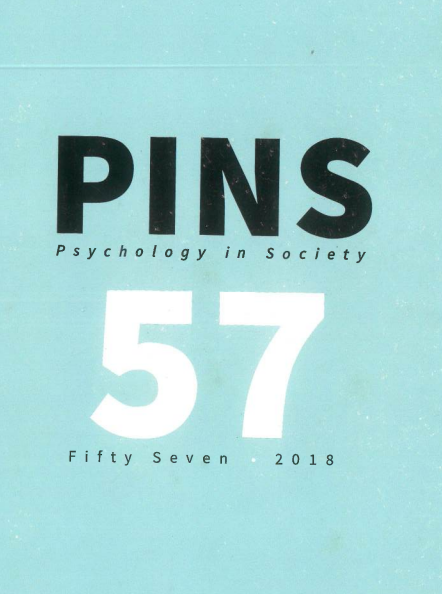Re-imagining our careers in post-apartheid public psychology: A collaborative autoethnography
DOI:
https://doi.org/10.57157/pins2018Vol57iss2a6045Keywords:
collaborative autoethnography, post-apartheid psychology, public service psychology, career identities, critical community psychology, clinical psychology, relevanceAbstract
This article is the product of many conversations, debates and reflections amongst three colleagues, as we contemplated our careers as clinical psychologists in the public service in South Africa. Having trained at roughly five year intervals since 1995, our paths intersected in 2013 when we found ourselves working together in a public hospital in KwaZulu-Natal. Using a collaborative autoethnographic approach, we interrogate the politics of post-apartheid psychology training and practice. We engaged in three cycles of personal, critical and collaborative reflective strategies. Our shared insights suggest that our careers are meaning-making journeys of anger at, but inspiration from, the public health care system. Inhabiting the roles of psychotherapist, activist, and philosopher, our methodological intention is to lose objective dispassion and use radical subjectivity, both in form and content of this article. We unearth, probe and question our personal, often unspoken, thoughts about our professional identities and argue that psychology in South Africa is not doing justice to the historical injustices it ought to be helping alleviate. We hope that this article inspires and emboldens psychologists to use the transformative power of their own voice to write the personal into the political, as a necessary disruption to current academia.
Downloads
Downloads
Published
How to Cite
Issue
Section
License
This journal is an open access journal, and the authors' and journal should be properly acknowledged, when works are cited.
Authors may use the publishers version for teaching purposes, in books, theses, dissertations, conferences and conference papers.
A copy of the authors’ publishers version may also be hosted on the following websites:
- Non-commercial personal homepage or blog.
- Institutional webpage.
- Authors Institutional Repository.
The following notice should accompany such a posting on the website: “This is an electronic version of an article published in PINS, Volume XXX, number XXX, pages XXX–XXX”, DOI. Authors should also supply a hyperlink to the original paper or indicate where the original paper (http://www.journals.ac.za/index.php/pins) may be found.
Authors publishers version, affiliated with the Stellenbosch University will be automatically deposited in the University’s’ Institutional Repository SUNScholar.
Articles as a whole, may not be re-published with another journal.
The copyright of the article(s) lies with the author(s).
The copyright of the journal lies with PINS-psychology in Society.
The following license applies:
Attribution CC BY-NC-ND 4.0 - https://creativecommons.org/licenses/by-nc-nd/4.0/

